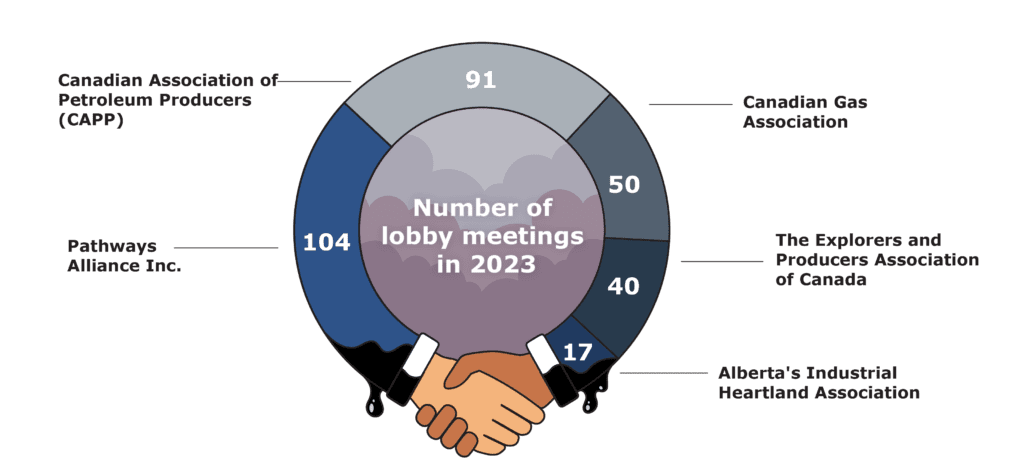Big Oil’s Big Year: A Summary of Big Oil’s 2023 Federal Lobbying
A Summary of Big Oil’s 2023 Federal Lobbying
The fossil fuel industry has a well-documented history of denying climate change and promoting disinformation to greenwash its brands and products. In addition to these public-facing efforts to dissuade people from being concerned about climate change, the fossil fuel industry uses its resources to access and influence governments through lobbying.
Environmental Defence Canada tracks meetings reported by fossil fuel industry associations and major oil and gas producers on the Federal Registry of Lobbyists. This report analyzes lobbying data from 31 oil and gas companies and industry associations in 2023. It provides details on the companies' frequency of meetings and which federal ministries and government officials the fossil fuel industry targets. The report only includes lobbying activities disclosed in the Federal Registry of Lobbyists.
The oil and gas industry in Canada has a vested interest in persuading governments to not enact regulations, policies or laws which would limit the production of fossil fuels and potentially reduce companies’ profits. Oil and gas lobbyists also lobby for more financial support for the industry. And they have a track record of success: virtually every environmental policy in Canada has been either delayed, weakened, or blocked. In fact, Big Oil is Canada's biggest climate action barrier.
By having the ear of politicians and government staff, the fossil fuel industry has tempered government ambition, shaped what is perceived as ‘politically feasible’ or ‘acceptable action’, and consistently pushed the government to prioritize the oil and gas industry in their decision-making.
Big Oil’s Big Year: A Summary of Big Oil’s 2023 Federal Lobbying
Lobby Meetings were conducted by Fossil Fuel Companies and their Industry association with the federal government
Figure 1 | Number of Meetings Registered by Industry Associations

Let's take action!
Credits
This report was researched and written by Emilia Belliveau, Energy Transition Program Manager, with contributions from Midhat Moini, Communications Manager; Julia Levin, Associate Director, National Climate; and Keith Brooks, Programs Director. Alejandro Ramos Vazquez created the design and illustrations.